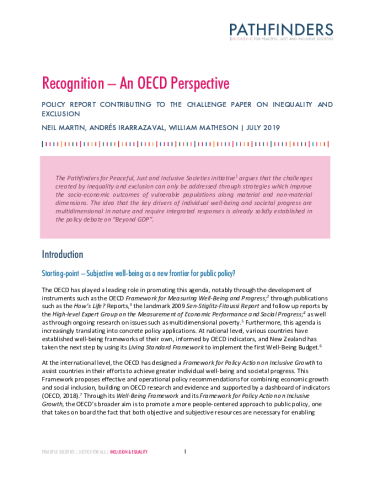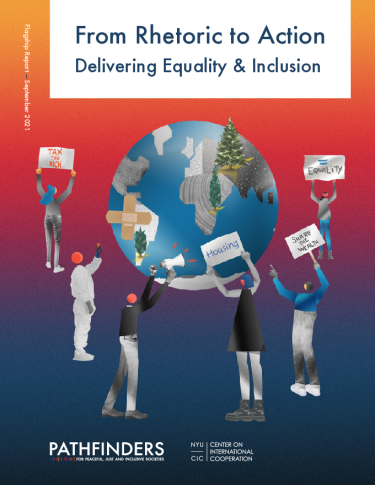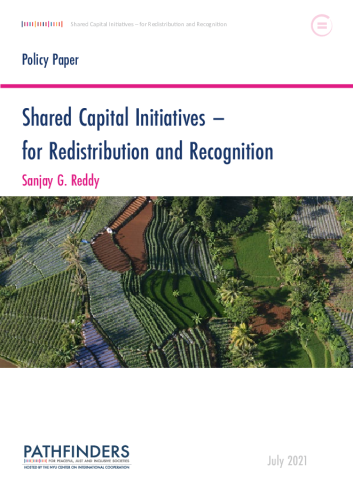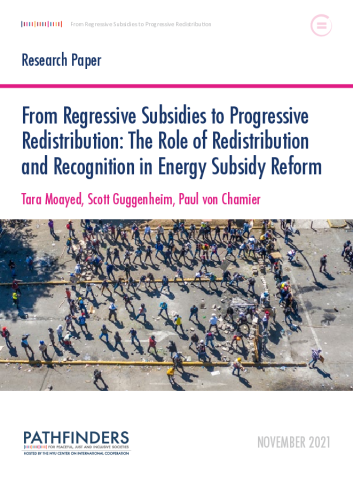The OECD has played a leading role in promoting this agenda, notably through the development of instruments such as the OECD Framework for Measuring Well-Being and Progress;2 through publications such as the How’s Life? Reports, the landmark 2009 Sen-Stiglitz-Fitoussi Report and follow up reports by the High-level Expert Group on the Measurement of Economic Performance and Social Progress; as well as through ongoing research on issues such as multidimensional poverty. Furthermore, this agenda is increasingly translating into concrete policy applications. At national level, various countries have established well-being frameworks of their own, informed by OECD indicators, and New Zealand has taken the next step by using its Living Standard Framework to implement the first Well-Being Budget. At the international level, the OECD has designed a Framework for Policy Action on Inclusive Growth to assist countries in their efforts to achieve greater individual well-being and societal progress.
Where the Pathfinders’ Grand Challenge on Inequality and Exclusion breaks potentially new ground, however, is in calling for strategies which rely on both redistribution and recognition. Indeed, with the notion of recognition, Pathfinders introduces into the policy debate a well-developed moral concept which originally belongs to the domain of interpersonal relations and proposes to use it as a lens for shedding light on various key aspects of subjective well-being, including dignity and respect, empowerment and agency, and identity and belonging.
The present brief will explore this idea at greater length by looking at the potential role that the concept of recognition can play as an instrument for inclusive growth, based on existing OECD analysis and research.
The present brief is organized into 3 parts. Part I will provide an analysis of the concept of recognition. It will seek to clarify the concept’s meaning by exploring its foundations and use in moral theory, to draw key lessons and present some of the different ways in which the concept has contributed to the debate on inequality and social inclusion. Part II will look at potential applications of recognition to issues of public policy. It will seek to connect recognition to existing OECD frameworks and areas of work, and will consider possible avenues for operationalizing the concept in the context of OECD work. Part III will draw on OECD evidence and research to help inform debates regarding the role of recognition in public policy. It will provide an overview of OECD work in areas identified as most relevant to the concept of recognition, highlight the contribution that OECD analysis can make to the understanding of recognition and explore potential avenues for future research.




